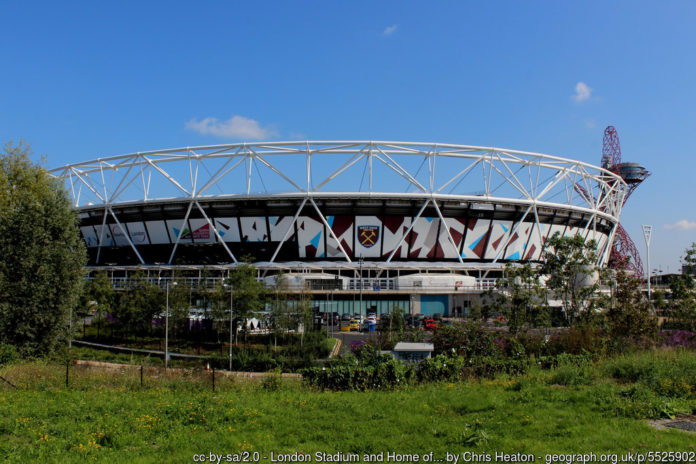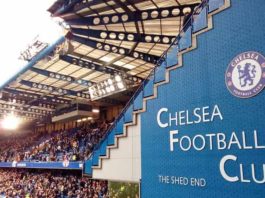With so many clubs crammed into a small country, it is inevitable that animosity will erupt in English football. Much of this is rooted in geography and the idea of territory being ‘taken’ or otherwise usurped by a rival club. However, even teams situated many miles apart, in separate counties, can still enjoy a rivalry – healthy or otherwise.
These are but a selection of unusual English football rivalries in that category…
Brighton v Crystal Palace
It doesn’t get more British than naming a rivalry after a motorway. English football is awash with them, such as the ‘M53 Derby’ between Tranmere and Chester and the ‘A1000 derby’, which sees Potters Bar Town take on Wingate & Finchley. However, the one that has gained a lot of prominence in recent years is the M23 Derby, between Brighton and Crystal Palace.
This rivalry was given a Premier League airing for the first time in 2017/18, as were the spread betting odds for that flagship match, as noted on this sports spread betting blog at the time. Back in November 2017, the AMEX Stadium witnessed a 0-0 draw, but with Brighton winning three of the following four competitive meetings – all of which produced over 2.5 goals – it is the Seagulls that have defied history, and Palace’s superior Premier League pedigree.
The rivalry between Palace and Brighton dates back to Christmas Day 1920 when Palace ran out 2-0 winners down in Hove. The fixture’s status as a bonafide rivalry was sealed in 1979 when the two clubs meet for the first time in the top-flight, and over the course of two seasons, the clubs met four times, with Palace scoring ten goals and winning on three occasions.
While it is not a particularly tense rivalry, the M23 derby is a test of just how important being London-based really is, even Palace are not part of the ‘elite’. So too is it a close-run rivalry, with Palace just four wins behind Brighton in the all-time stakes.
AFC Wimbledon v MK Dons
This rivalry is rich in the concept of football principles, and whether money or heart is what really matters. Supporters of the original Wimbledon FC, a club reborn as MK Dons in 2004, shortly after relocation to Milton Keynes the previous year, were presented with this dilemma in the first half of the 2000s.
On the one hand, the presence of MK Dons granted a region with barely any culture in the ‘beautiful game’ a place on the map of English football. Future local talents, most notably Dele Alli, would benefit from the presence of the club with its new facilities and excellent stadium. The only sacrifice was the identity of a broken club, which had long since lost its roguish charm of years past.
However, the launch of AFC Wimbledon in 2002 revived the spirit of the ‘Crazy Gang’. Fuelled by memories of unlikely triumphs and a surge through the pyramid, visions of a new team rising from the ashes were rife. The club shot through the divisions to eventually become a Football League club in 2011 and met MK Dons for the first time the following year.

These days, the clubs stand as equals in terms of their place in the pyramid, even though MK Dons hold every other advantage. Yet, with AFC Wimbledon still growing, and planning to play at a permanent home (in Merton) for the first time since 1991, this rivalry has plenty of potential to ferment over the coming years.
Sheffield United v West Ham
The origin of this animosity between clubs boils down to one player – namely, Carlos Tevez. Back in the spring of 2007, West Ham looked utterly doomed to relegation. Apparently hopeless after going down 4-3 to Tottenham in early March, West Ham threw caution to the winds and won seven of the remaining nine fixtures. Much of this was down to Tevez’ great form, which saw them gain ground on fellow relegation battlers Sheffield United.
West Ham had no choice but to win at Old Trafford on the final day, and they did so, with Tevez’ goal sending Sheffield United down into the Championship. What followed was a summer in which Blades fans demanded to be spared relegation, at West Ham’s expense.
Irregularities surrounding Tevez’ signature, along with that of Javier Mascherano, naturally became a talking point in light of the relegation battle’s outcome. While West Ham had already been charged for breaching Premier League rules, the fact that they were not forcibly relegated to Sheffield United’s benefit still remains a source of hurt for Sheffield United supporters.
In the years that followed the Survival Sunday of 2007, Sheffield United sank deeper down the footballing pyramid, while West Ham moved to a new stadium and enjoyed a near-uninterrupted run of top-flight football.
Ultimately, only a Premier League double over West Ham in 2019/20, directly causing the Hammers’ relegation and the Blades’ survival, will be enough in the eyes of the Bramall Lane faithful to right the perceived ‘wrong’ of 2007. Subject to change, the first meeting is on 26 October at the London Stadium, with the surely-tumultuous return fixture at Bramall Lane on 11 January.




